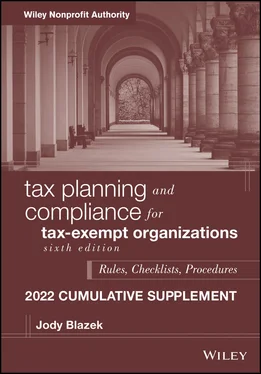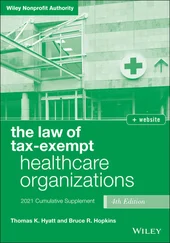Automated Liens and Levies.New automatic, systemic liens and levies will be suspended during this period.
Passport Certifications to the State Department.The IRS will suspend new certifications to the Department of State for taxpayers who are “seriously delinquent” during this period. These taxpayers are encouraged to submit a request for an Installment Agreement or, if applicable, an OIC during this period. Certification prevents taxpayers from receiving or renewing passports.
Private Debt Collection.New delinquent accounts will not be forwarded by the IRS to private collection agencies to work during this period.
Field, Office, and Correspondence Audits.During this period, the IRS will generally not start new field, office, and correspondence examinations. We will continue to work refund claims where possible, without in-person contact. However, the IRS may start new examinations where deemed necessary to protect the government's interest in preserving the applicable statute of limitations.
In-Person Meetings. In-person meetings regarding current field, office, and correspondence examinations will be suspended. Even though IRS examiners will not hold in-person meetings, they will continue their examinations remotely, where possible. To facilitate the progress of open examinations, taxpayers are encouraged to respond to any requests for information they already have received—or may receive—on all examination activity during this period if they are able to do so.
Unique Situations. Particularly for some corporate and business taxpayers, the IRS understands that there may be instances where the taxpayers desire to begin an examination while people and records are available and respective staffs have capacity. In those instances when it's in the best interest of both parties and appropriate personnel are available, the IRS may initiate activities to move forward with an examination—understanding that COVID-19 developments could later reduce activities for an agreed period.
General Requests for Information. In addition to compliance activities and examinations, the IRS encourages taxpayers to respond to any other IRS correspondence requesting additional information during this time if possible.
Earned Income Tax Credit and Wage Verification Reviews.Taxpayers have until July 15, 2020, to respond to the IRS to verify that they qualify for the Earned Income Tax Credit or to verify their income. These taxpayers are encouraged to exercise their best efforts to obtain and submit all requested information, and if unable to do so, please reach out to the IRS indicating the reason such information is not available. Until July 15, 2020, the IRS will not deny these credits for a failure to provide requested information.
Independent Office of Appeals.Appeals employees will continue to work their cases. Although Appeals is not currently holding in-person conferences with taxpayers, conferences may be held over the telephone or by videoconference. Taxpayers are encouraged to promptly respond to any outstanding requests for information for all cases in the Independent Office of Appeals.
Statute of Limitations.The IRS will continue to take steps where necessary to protect all applicable statutes of limitations. In instances where statute expirations might be jeopardized during this period, taxpayers are encouraged to cooperate in extending such statutes. Otherwise, the IRS will issue Notices of Deficiency and pursue other similar actions to protect the interests of the government in preserving such statutes. Where a statutory period is not set to expire during 2020, the IRS is unlikely to pursue the foregoing actions until at least July 15, 2020.
Practitioner Priority Service.Practitioners are reminded that, depending on staffing levels and allocations going forward, there may be more significant wait times for the PPS. The IRS will continue to monitor this as situations develop.
“The IRS will continue to review and, where appropriate, modify or expand the People First Initiative as we continue reviewing our programs and receive feedback from others,” Rettig said. “We are committed to helping people get through this period, and our employees will remain focused on these and other helpful efforts in the days and weeks ahead. I ask for your personal support, your understanding—and your patience—as we navigate our way forward together. Stay safe and take care of your families, friends and others.”
(b) IRS Delays in Tax Payment and Return Due Dates
On July 8, the IRS reminded taxpayers who took advantage of the People First Initiative tax relief and did not make previously-owed tax payments from March 25 to July 15 that they needed to restart their payments on July 15. 3
The delay in income tax payment and filing included in the People First Initiative was followed up with delays in payroll tax withholding systems and payment. In response to the economic fallout of the COVID-19 pandemic on August 28, 2020, the IRS provided guidance to employers regarding an August 8 presidential executive order allowing employers to defer the withholding, deposit, and payment of certain payroll tax obligations (Notice 2020-65). The order also instructed the Secretary of the Treasury to explore avenues, including legislation, for eliminating the obligation to pay the deferred taxes.
On September 2, 2020, another presidential directive permitted the Social Security taxes of most federal employees to be delayed and not withheld from paychecks until 2021. The National Finance Center, which provides payroll services to over 600,000 federal employees, said at the time that it would defer the withholding and payment of the employees' share of Social Security taxes effective for the first pay period beginning after September 1, 2020.
Weather-related disasters also required special IRS declarations. The IRS announced that victims of the California wildfires in counties of California (and later Oregon and Washington) and the derecho storm in an Iowa county were designated as federal disaster areas qualified for individual assistance and additional time to make tax payments and file returns. Affected individuals and businesses had until December 15, 2020, to file returns and pay taxes that were due beginning October 15, 2020, including returns and payments due September 15, 2020, and quarterly payroll and excise tax returns normally due October 31, 2020. 4
Lastly, the IRS encouraged taxpayers to adopt good tax recordkeeping systems and disaster preparedness. Taxpayers were reminded to create and maintain an emergency preparedness plan, including securing key documents and making copies and electronic backups of various financial statements and records, documenting valuables and content of homes, and updating emergency plans. 5
Other tax compliance news prompted by COVID-19 included:
State guidance on whether COVID-19 telecommuters could create nexus was considered in some states for workers temporarily working in another state and their employers who did not reside in that state.
Security Summit warns tax professionals about new COVID-19 phishing scams, in the fourth installment of a series titled “Working Virtually: Protecting Tax Data at Home and at Work.” Scammers are zeroing in on opportunities presented by Economic Impact Payments and increased teleworking by practitioners.
The Tax Court made additional COVID-19-related procedural changes to accommodate remote operations during the COVID-19 pandemic plus additional procedural changes.
The IRS placed a temporary stop on mailing notices regarding balances due. “Although the IRS continues to make significant reductions in the backlog of unopened mail that developed while most IRS operations were closed due to COVID-19, this temporary adjustment to processing is intended to lessen any possible confusion that might be associated with delays in processing correspondence received from taxpayers,” the agency said. Such confusion might result among taxpayers who previously received a balance due notice and mailed a payment to IRS but the payment may still be unopened. In addition, the IRS said, the “unopened mail will be posted and credited on the date the IRS received them—rather than the date the agency opened and processed them.” Nevertheless, the IRS encouraged those who had received but not yet responded to a balance due notice to promptly respond.
Читать дальше












